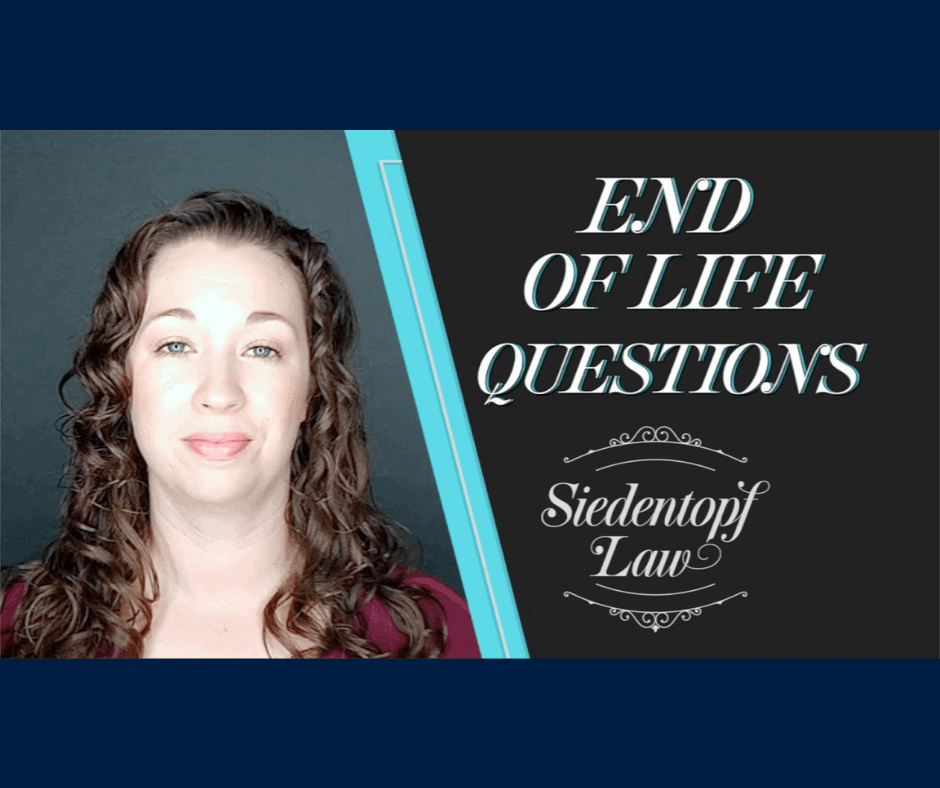Answering difficult end-of-life questions.
How do we do this?
I’m estate planning attorney Sarah Siedentopf and I’d like to talk about this very quickly because of course estate planning attorneys deal with this all of the time. But we are not the only people you need to be talking about your difficult end-of-life questions and thoughts, decisions with.
The people on your team are of course yourself, you’re, you’re the one guiding things. Your estate planning attorney can help with a lot of things. Your doctors, a very important part of this, as well as family members. So when we think about communicating end-of-life decisions of course there are verbal communications with doctors, with family members, but there are several documents that are used.
One of course is your will. That is primarily used for end-of-life decisions. So burial, cremation, where are we scattering ashes, those sorts of things. But for actual decisions that happen during your lifetime, there’s the advance directive for healthcare. Now, this can be done in your attorney’s office or at your doctor’s office. This is the document that makes some choices, but also and quite honestly, more importantly, designates the individual or individuals that you want to make binding decisions for you if you cannot for medical choices. So the advance directive for healthcare can be done either by your doctor or by your attorney.
On the other hand, the DNR or do not resuscitate order has to be done by your doctor as well as a physician’s order for life-sustaining treatment. That unlike the name, what it sounds like is actually usually used to say that you do not want life-sustaining treatment. And it is specifically meant for those who have terminal illnesses and do not have an extended life expectancy. That has to be done by your doctor’s office, by your doctor specifically. And once you have created or thought about creating these documents you need to think about what are your actual choices. And so deciding what you want before we try to make it fit into a form and choose the, you know, multiple choice option that most closely matches your wishes, you need to know what those wishes are.
It’s relatively easy for us to write things in, make changes, help you reflect what you want, as long as you know what that is. But your doctor, your attorney, your family, and yourself, all very important players as well as an advance directive, a will, that DNR order if that is what you want. And if you were in the situation a physician order for life sustaining treatment.
If you have more questions around this area, obviously maybe they’re doctor questions, but I’m also happy to talk about them and also welcome your comments. Thank you.








